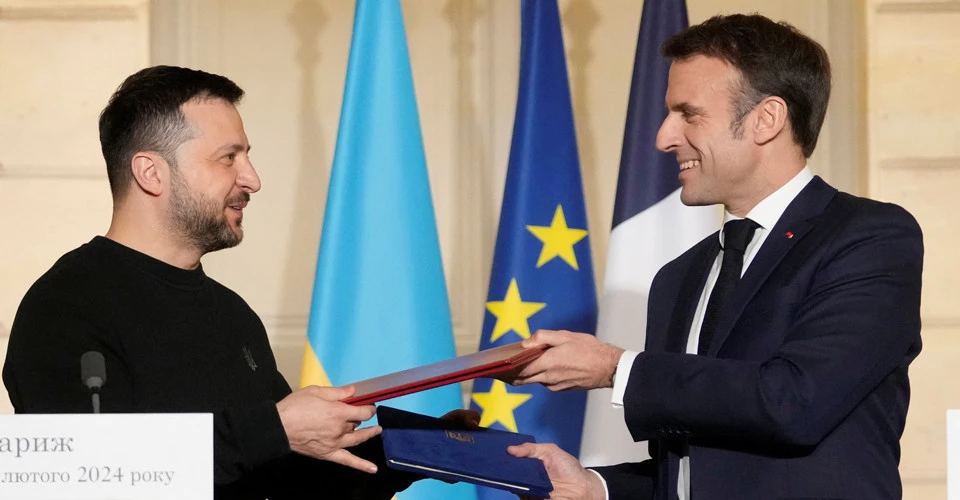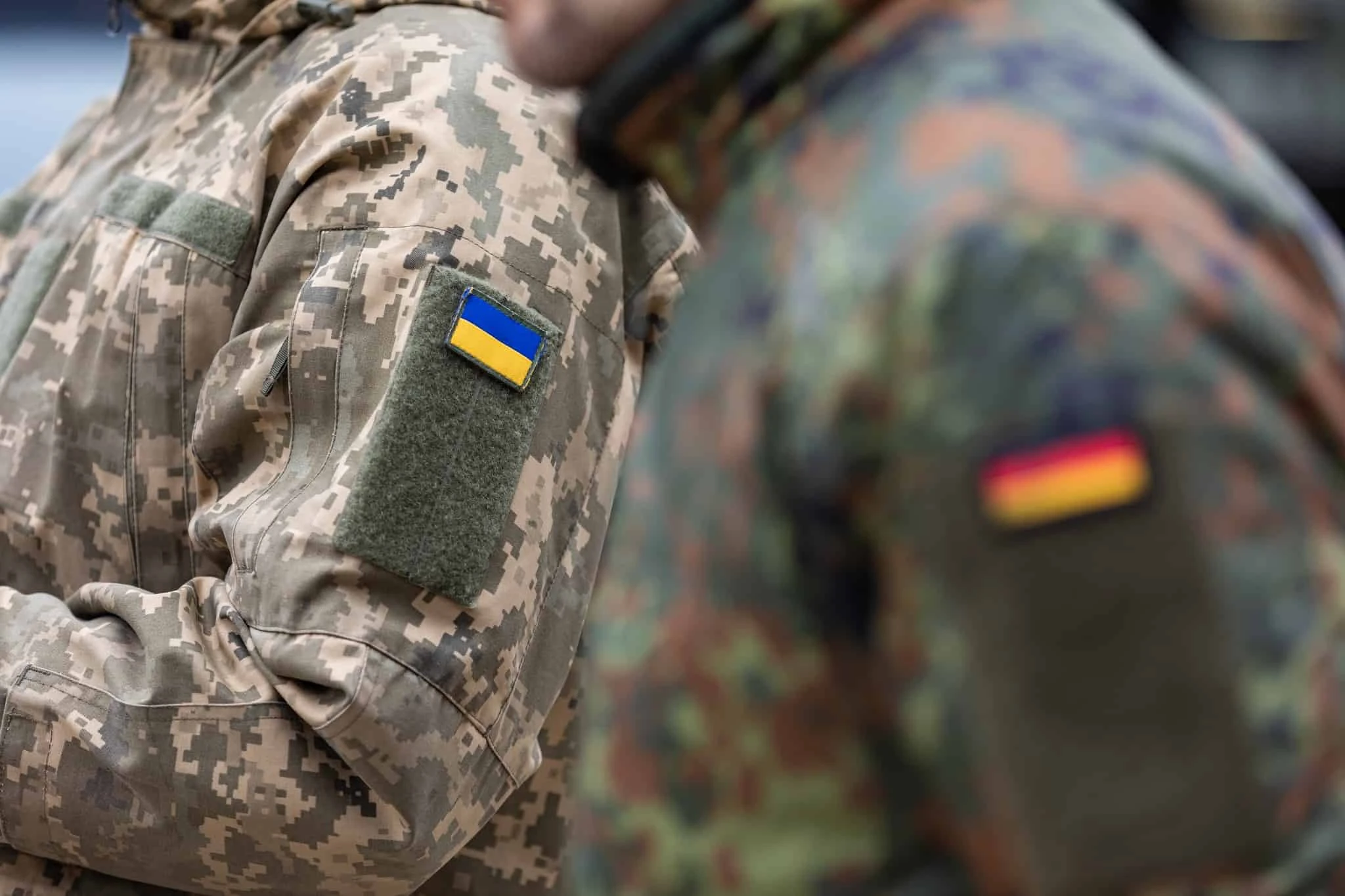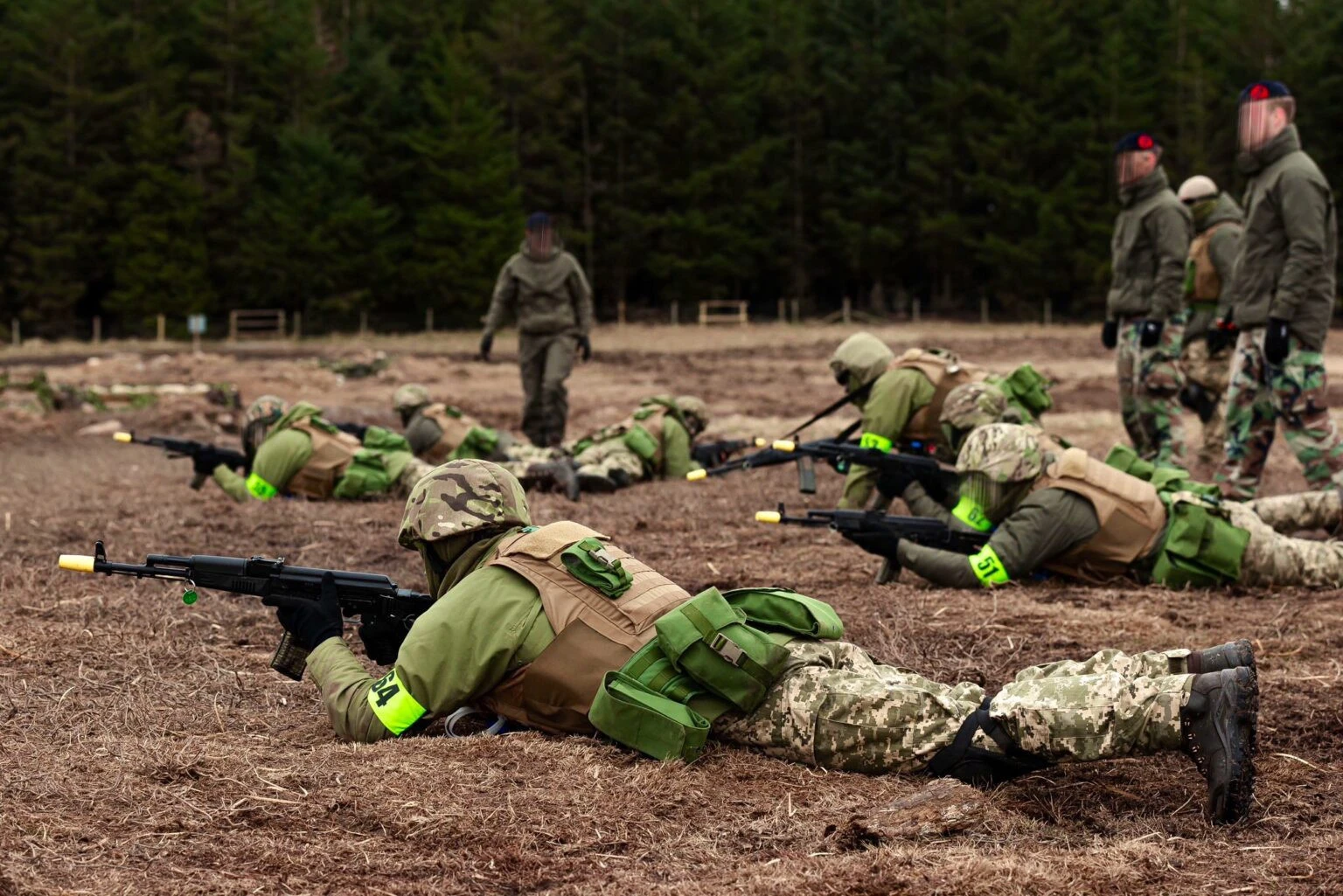
Mission (im)possible: Can Western military instructors come to Ukraine?
The idea of sending EU and US military instructors to Ukraine is still being debated internationally. But the main roadblocks remain concerns over escalating the conflict between Russia and NATO, and the risk of these instructors becoming targets for Russian missiles
Contents
- Historical background: How Macron sparked discussion about sending NATO soldiers to Ukraine.
- When Western military instructors might arrive in Ukraine and how NATO will try to avoid war with Russia if they are killed.
- What experts say about sending military instructors to Ukraine.
At the NATO-Ukraine meeting on August 28, 2024, allies reaffirmed their readiness to strengthen Ukraine's defense, including providing additional military equipment and support in training Ukrainian soldiers. However, despite this, the issue of sending instructors directly to Ukrainian territory remains controversial. The primary reason is the fear of a NATO-Russia war. Therefore, the Alliance, while considering potential risks, is currently focusing on strengthening Ukraine's defensive capabilities through training outside of Ukraine, mainly in the United Kingdom, Poland, and Germany, where tens of thousands of Ukrainian soldiers have already been trained.
Espreso will discuss whether NATO military instructors can be expected in Ukraine in the near future and what this would mean in the war with Russia.
Historical background: How Macron sparked discussion about sending NATO soldiers to Ukraine

Photo: Reuters
Before Russia's full-scale invasion of Ukraine in February 2022, NATO conducted several training programs for Ukrainian military personnel by sending its instructors to Ukraine. These programs aimed to enhance the country's defense capabilities, develop the Ukrainian Armed Forces, and adapt them to NATO standards.
Several programs were in operation, including the Joint Multinational Training Group-Ukraine, the Canadian Operation UNIFIER, the British Operation ORBITAL, and others. These programs were concentrated in western Ukraine and had been ongoing for several years at the International Peacekeeping and Security Center (Yavoriv training ground). Thanks to these efforts, thousands of Ukrainian soldiers were able to improve their skills, which played a significant role in repelling the Russian attack during the first weeks and months of the war.
However, in February 2022, all these programs were halted due to the threat to the lives of military instructors. Subsequently, Western allies created new programs to train Ukrainian soldiers, but these were conducted on NATO territory. This allowed tens of thousands of Ukrainian fighters to receive military training according to Alliance standards.
At the beginning of 2024, French President Emmanuel Macron decided to change the traditional approach to Russia's war against Ukraine and began to engage in strategic ambiguity. This led to the first public statements that NATO troops might be in Ukraine. In February, Macron stated that France did not rule out this possibility. While Western leaders had previously unanimously declared that their soldiers would not be present in Ukraine, the French president opted to pursue this strategy of uncertainty to influence the Kremlin's thinking.
This issue began to be actively discussed in the media, leading to national-level debates in France, with Macron becoming a headline figure for some time. Ultimately, he clarified that for now, the focus was only on military instructors to help Ukrainians train new reserves. However, Macron also stated that Western leaders should establish a clear red line to warn the Kremlin leader when NATO troops might indeed appear in Ukraine and fight alongside the Ukrainian Armed Forces against Russian aggressors.
In the end, such statements did not change Vladimir Putin's position. Moreover, Russia began to claim that French military personnel or any other NATO specialists would become "legitimate targets" for Russian missiles.
Nevertheless, Macron's insistence influenced a broader discussion that flared up in NATO countries' government circles. By May-June, this discussion had reached its peak, as France began forming a coalition of foreign instructors to be sent to Ukraine and sent corresponding letters to its colleagues in many countries. At the end of May, the French publication Le Monde wrote that the deployment of French and European instructors to Ukraine "could be a matter of weeks, or even days." This was also reported by Reuters.
However, as later reported by Welt, most EU countries, including Germany and Italy, opposed this move, as did Washington. Politico wrote that the U.S. president expressed concern about the potential consequences of sending troops from any NATO country to a place where they "could find themselves on the front lines and escalate the conflict." Furthermore, the Joe Biden administration rejected the proposal to send not only military personnel but even American civilian contractors to Ukraine to service Western military equipment, including F-16 fighter jets, due to safety concerns.
An interesting incident occurred on May 27, when Ukrainian Armed Forces Commander-in-Chief Oleksandr Syrskyi hastily announced that France would send its military instructors and that the relevant documents had already been signed. However, the French Defense Ministry stated that the issue was still under review and remained only a topic of discussion, so the instructors would not be sent yet.
By July-August 2024, discussions about sending military instructors had almost disappeared from the public space, as the U.S. and Germany continued to insist on the need for a cautious approach to the issue of military support for Ukraine, effectively blocking the deployment of instructors on Ukrainian territory.
When Western military instructors might arrive in Ukraine and how NATO will try to avoid war with Russia if they are killed

Photo: Ukraine’s General Staff
At the end of August, the publication Welt reported on a secret military report warning the EU about the dangers of sending Western instructors to Ukraine. According to the report, in November this year, the mandate of the European Training Mission, which has so far operated exclusively on EU territory, may be expanded to include training directly in Ukraine. This decision, however, raises concerns regarding the potential security risks for the instructors.
"This would be a breaking of a taboo in the Ukrainian war, as European Union soldiers could soon be stationed in Ukraine as instructors for Ukrainian warriors. Kyiv has already strongly demanded this, addressing EU's chief diplomat Josep Borrell on May 31. EU foreign and defense ministers will discuss this issue for the first time shortly. The topic will also be debated by responsible EU ambassadors in the so-called Political and Security Committee. But a final decision must be made no later than November," wrote the German journalists.
If NATO military instructors were indeed sent to Ukraine, their number could range from a few hundred to several thousand, depending on the scale of the mission and the tasks they would perform. However, ensuring their safety in Ukraine would require significant resources to provide security on multiple levels:
- Enhanced Air Defense: This could include air defense systems such as Patriot, NASAMS, or IRIS-T, which are already deployed in Ukraine or could be provided additionally by allies. These systems would help protect training bases from missile strikes.
- Ground Security: The instructors could be guarded by specially trained units of the Ukrainian army, which would help prevent possible ground attacks or sabotage.
- Mobility: The instructors might be stationed at several mobile bases or given the ability to move quickly between locations, making it harder for Russians to target them accurately.
Regarding the location of the instructors, they could be stationed at strategically important but relatively safe sites in western Ukraine, where the likelihood of Russian missile strikes is lower. Even if such an incident were to occur, a full-scale war between Russia and NATO remains unlikely due to the enormous risks of nuclear conflict, which both sides strive to avoid. NATO would likely avoid immediate military retaliation and instead focus on diplomatic and economic sanctions while increasing military support for Ukraine.
Additionally, NATO might consider signing special legal agreements before deploying these instructors, defining their status as "civilian consultants," who are formally not NATO military personnel.
Overall, if such a mission is approved, it would be one of the largest military aid projects to Ukraine, requiring close coordination between the Ukrainian government and Western allies.
However, many experts emphasize that there are purely political factors influencing the deployment of Western instructors to Ukraine, particularly the steadfast positions of Ukraine's key allies—the United States and Germany.
What experts say about sending military instructors to Ukraine

Photo: Armyinform
When these issues were in the spotlight due to Macron's statements, military experts outlined the conditions necessary for Western instructors to actually be deployed in Ukraine. For example, Special Forces officer and former lawmaker, Ihor Lapin, mentioned during an interview on Espreso TV that two key factors would need to occur for French military personnel to be sent to Ukraine.
"The first factor would be a breakthrough on the front lines in Ukraine. The second factor would require a formal request from President Volodymyr Zelenskyy and approval by the Ukrainian Parliament, specifically a vote in the Verkhovna Rada to bring foreign troops to aid our country. I don't understand why such a request hasn't been made for three years now, especially when the situation at the front is dire, with serious problems in the Armed Forces regarding manpower and delayed military aid, which the Russians have taken advantage of to seize large portions of our territory," Lapin said.
In contrast, Ivan Kyrychevskyi, a military expert from Defence Express, believes that by spring 2025, there will be a technical possibility to deploy a large contingent of Western troops in Romania, which could later be moved to Ukraine. This could include a French brigade of 5,000 soldiers, several dozen CAESAR self-propelled artillery units, and Leclerc tanks.
"I would suggest that Macron is preparing for the potential deployment of French troops regardless of the situation at the front, looking ahead to spring 2025," the military expert noted, adding that the decision on whether to deploy NATO troops in Ukraine has become more of a geopolitical tool and an additional means of exerting pressure on the Kremlin.
Polish politician of Ukrainian descent Mirosław Czech argued in an interview with Studio West that the number of foreign instructors in Ukraine is irrelevant if they don't have air defense protection, as they would simply become targets for Russia.
This point was also highlighted by Viktor Yahun, former Deputy Head of the Security Service of Ukraine (2014-2015), in a comment to Espreso:
"Of course, the deployment of foreign instructors in Ukraine is timely. But we must consider that the Russians have their informants and could obtain information about the location of key defense personnel, allowing them to launch targeted strikes. The risk is indeed high. It might be better to train our soldiers abroad, where the necessary equipment and instructors are already in place, rather than bringing them here and constantly ensuring their safety. That's why our soldiers are being trained abroad, and if that option is no longer available, we'll have to find other solutions here," Yahun said.
He also noted that after nearly three years of full-scale war, Ukrainian soldiers have gained significantly more combat experience than NATO instructors, suggesting that building up Ukraine's own training system might be more effective than the complex logistics of sending soldiers abroad or waiting for Western military instructors to arrive in Ukraine.
"We have more specialists here for training assault troops. They have more knowledge and years of war experience than some foreign instructors who have never been in combat. Foreign instructors are more necessary for training specialists on air defense systems, pilots, etc. But again, this doesn't require their presence here. In my opinion, sending tens of thousands of people abroad to be trained as assault troops is simply illogical. We have our own instructors who understand what needs to be done just as well as foreigners," Yahun added.
Many experts also stress that the decision to send Western instructors is more political than something that could decisively change the course of the war. It may represent yet another step in overcoming the collective Western fears of crossing the Kremlin's "red lines," especially considering that the Ukrainian military's Kursk operation demonstrated how much the Kremlin is bluffing with its threats.
However, it's important to remember that Ukraine's key allies, the United States and Germany, have maintained moderate views since the beginning of the war and often temper Ukraine's efforts to secure more extensive NATO military assistance in the conflict with Russia. The upcoming U.S. presidential elections in November will be crucial in determining Washington's future policy on the war in Ukraine. If the support for Ukraine continues and deepens, this could influence the EU's decision on sending instructors. Additionally, global media have speculated that possible negotiations between Ukraine and Russia could take place in the fall. If these talks fail and the active phase of the war continues into 2025, the EU and the U.S. might decide to further increase support for Ukraine, potentially including the deployment of instructors. Thus, there are many factors influencing this decision.
- News












































